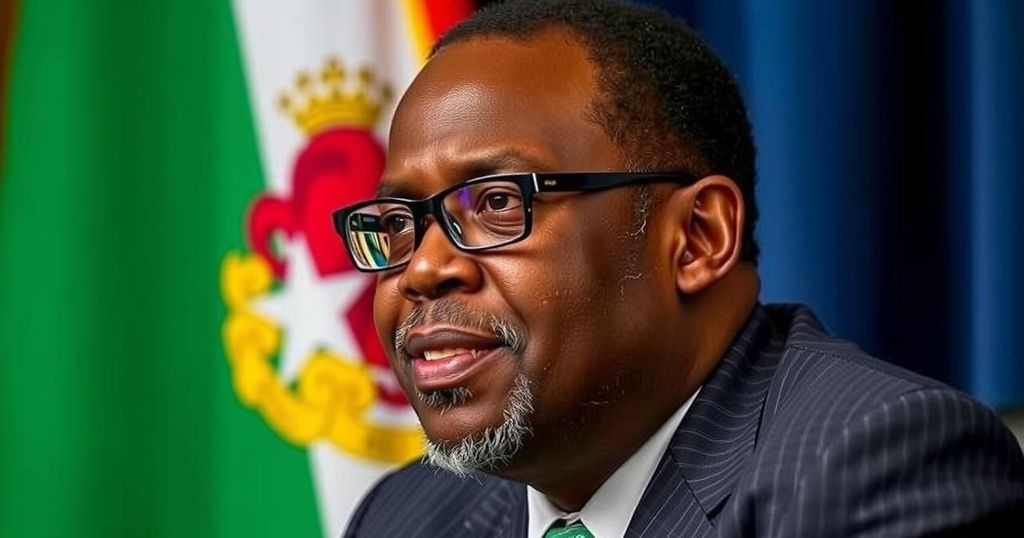Equatorial Guinea’s government has filed a lawsuit against former ANIF Director General Baltasar Engonga over leaked sex tapes featuring him and several married women. Following widespread public outrage, officials are investigating the matter, asserting violations of ethical standards and the need to hold Engonga accountable for damaging the country’s reputation.
The Government of Equatorial Guinea has initiated legal action against its former Director General of the National Financial Investigation Agency (ANIF), Baltasar Engonga, following a scandal involving leaked intimate videos. Engonga was dismissed from his position after over 400 explicit tapes emerged, featuring him with the wives of several prominent individuals, including his own brother’s spouse. In response, Vice-President Teodoro Mangue asserted that any official engaging in sexual misconduct at work would face repercussions, labeling such behavior a serious breach of the country’s code of conduct. Jerónimo Osa Osa, the Minister of Information, Press, and Culture, represented the government in condemning Engonga’s actions, which he stated violated the ethical and moral standards expected within Equatorial Guinean society. In a statement made to local media outlet Ahora EG, Osa declared that the government, through the State Attorney General’s Office, would pursue a comprehensive investigation into Engonga’s conduct, prompted by the widespread dissemination of footage depicting his inappropriate relations with various women, some of whom are married. In an official declaration, the government denounced the acts as severe infringements of societal moral values. Consequently, legal proceedings have commenced against Engonga and his accomplices via the Public Prosecutor’s Office, with the objective of holding those involved accountable under civil, administrative, and potentially criminal law, particularly concerning the implications for public health. Measures announced by the government include addressing issues such as the distinction between personal and private boundaries, obtaining proper consent, and upholding the dignity and honor of those affected by the scandal. Engonga’s scandal became public during a fraud investigation, during which authorities from ANIF conducted searches of his residence and office. It was during this probe that the scandalous footage was discovered, reportedly recorded with the consent of the involved parties, yet subsequently leaked, igniting substantial public outrage and concern.
The issue of leaked sex tapes involving public officials is significant within Equatorial Guinea, highlighting concerns surrounding ethical conduct, privacy rights, and the public image of government representatives. The government’s response to such scandals indicates a comprehensive approach to uphold moral standards while addressing the potential implications of such behavior on social cohesion and international reputation. Baltasar Engonga’s position as former Director General of ANIF placed him in a role of public trust, thus amplifying the outrage stemming from his alleged misconduct.
In summary, the legal action taken by the Government of Equatorial Guinea against Baltasar Engonga underscores a commitment to maintaining moral integrity within public service. The incident highlights the gravity of misconduct among officials, the importance of adhering to ethical standards, and the serious repercussions that can follow violations. As investigations proceed, the government’s efforts reflect a desire to protect the values of Equatorial Guinean society while addressing the significant challenges posed by such scandals.
Original Source: leadership.ng






